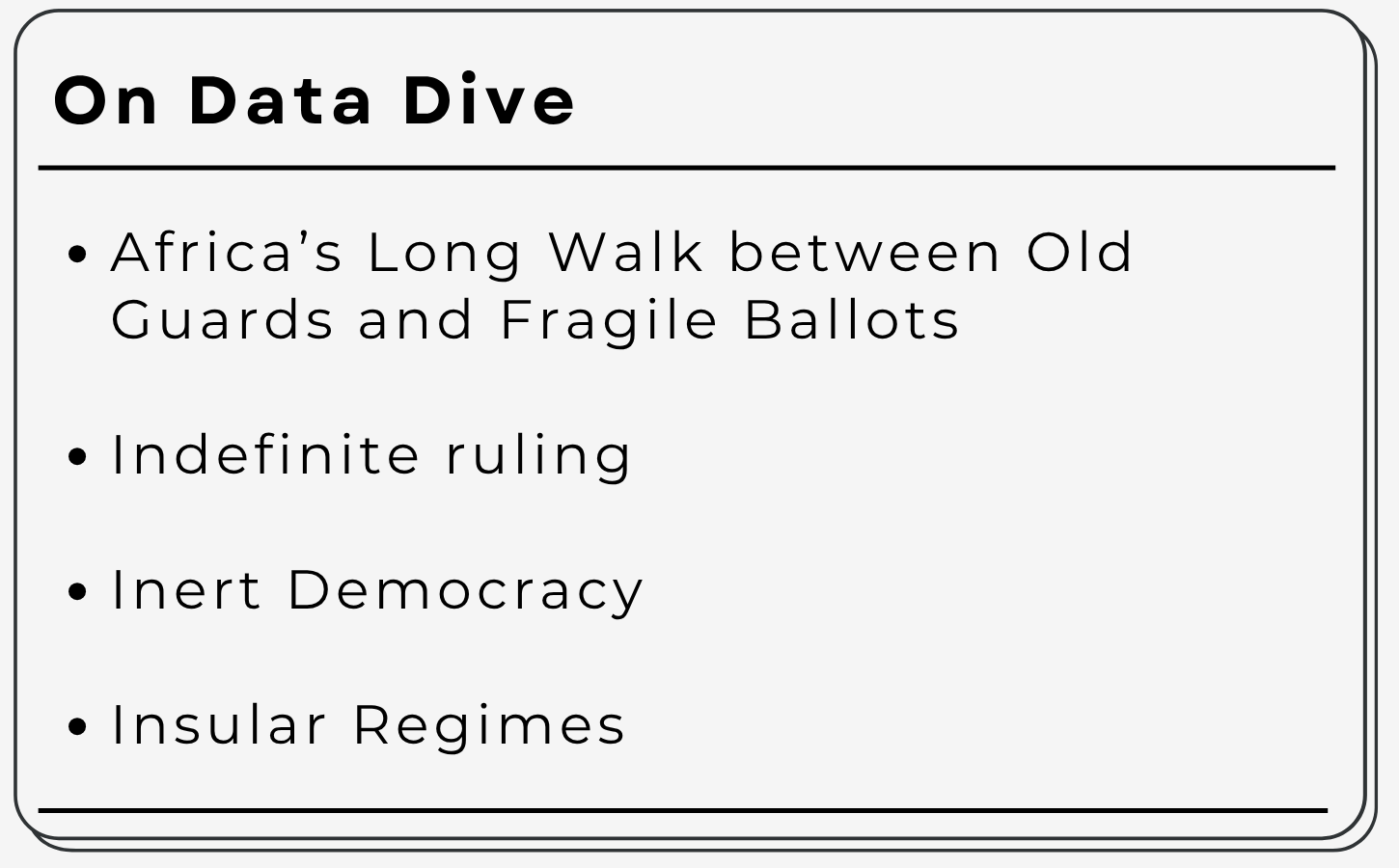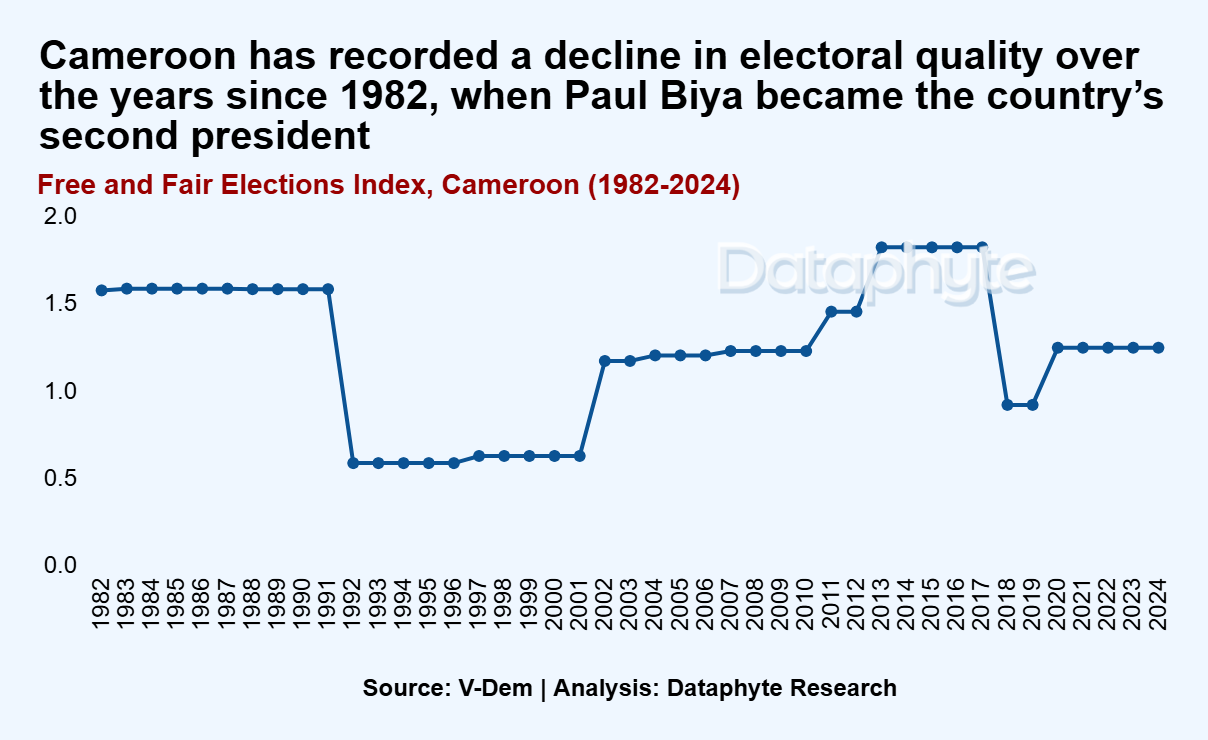Africa’s Long Walk between Old Guards and Fragile Ballots
As Cameroon awaits the official results of its just-concluded 2025 presidential election, all eyes are once again on Paul Biya, the 92-year-old leader who has governed Cameroon for over four decades.
The results, expected on October 26, will mark the sixth presidential contest under President Biya’s watch since he first came to power in 1982. If declared the winner, he would cement his place as the world’s oldest serving head of state.
President Biya’s grip on power has been a defining feature of Cameroonian politics for decades. His rule became virtually limitless in 2008 when parliament scrapped the constitutional two-term limit, removing one of the last checks on presidential tenure. The amendment, a revision of the 1996 Constitution, gave President Biya the legal backing to run indefinitely, consolidating a political reign that now spans 43 years.
Since then, Cameroon has seen steady backsliding in democratic governance. Elections continue to take place, but observers and rights groups say they fall short of basic democratic standards. The process is often marked by limited political competition, restrictions on opposition activity, and the heavy use of state resources by the ruling party.
These patterns have earned Cameroon the label of an electoral autocracy, according to the 2025 Varieties of Democracy (V-Dem) report. Freedom House similarly notes that President Biya’s Cameroon People’s Democratic Movement (CPDM) has stayed in power through election manipulation, political patronage, and suppression of dissent, leaving little room for genuine democratic renewal.
Explore Our Publications
We release in-depth research publications and publish compelling data-driven reports on a wide range of topics.




